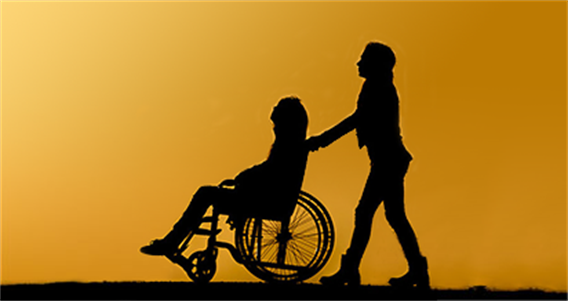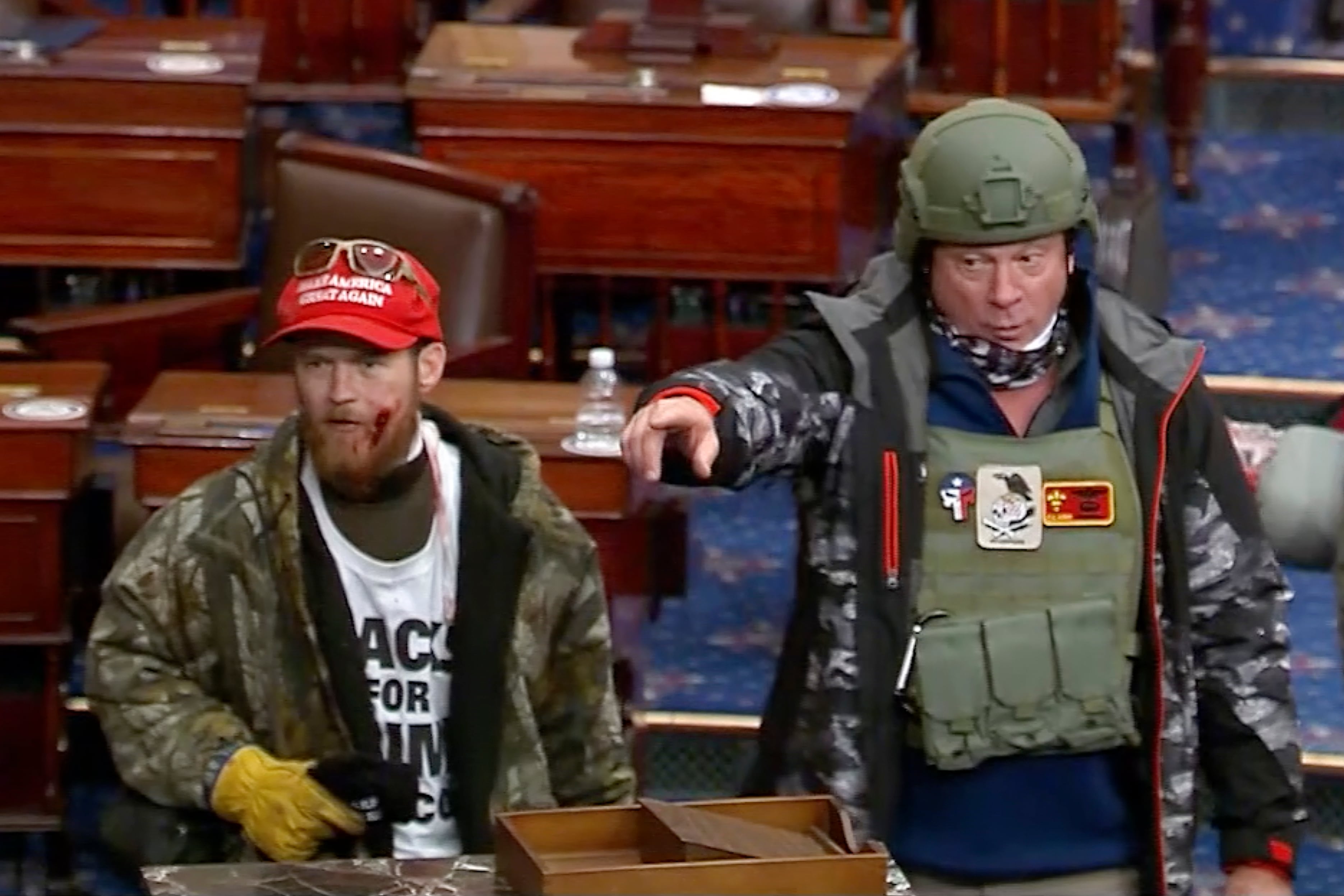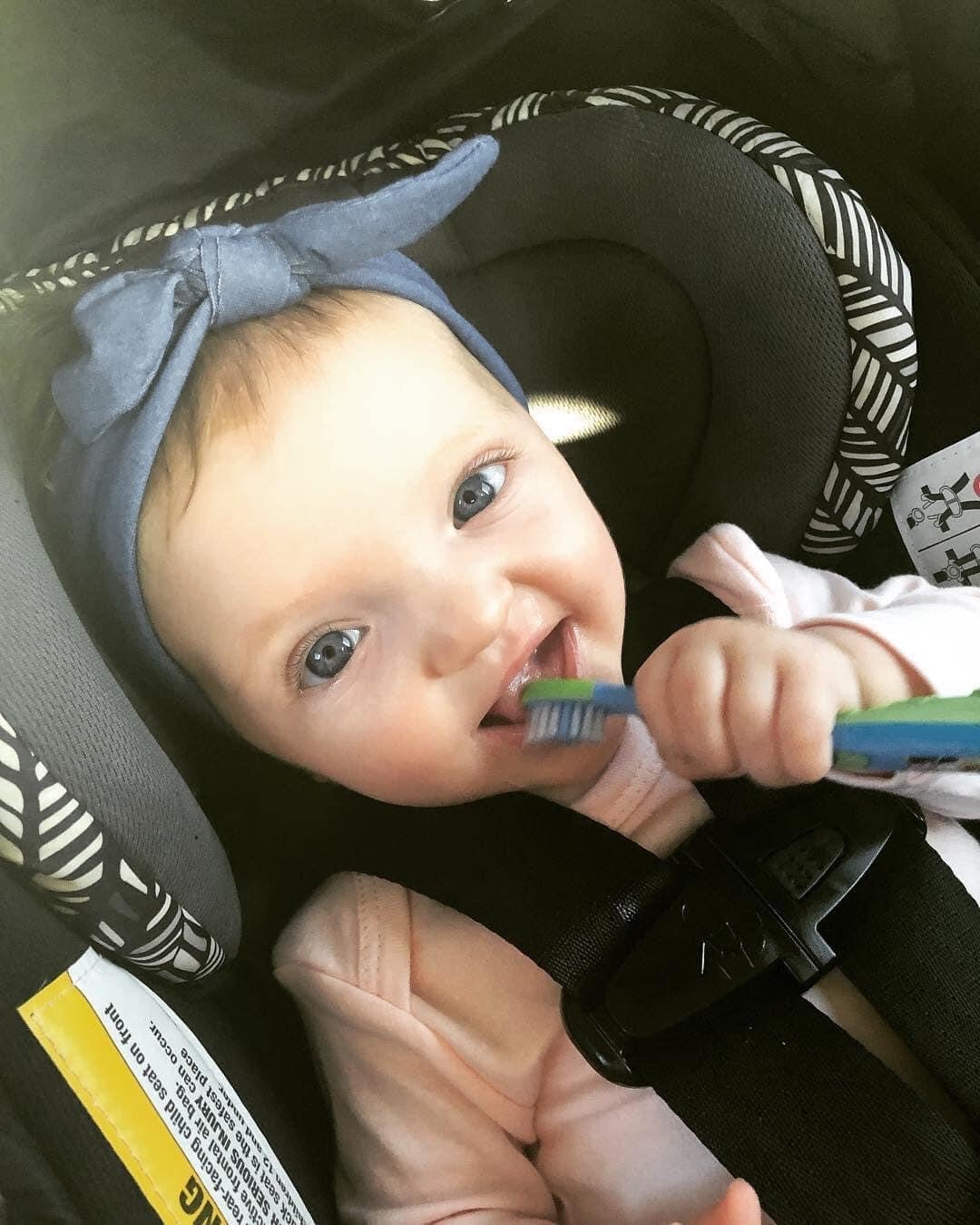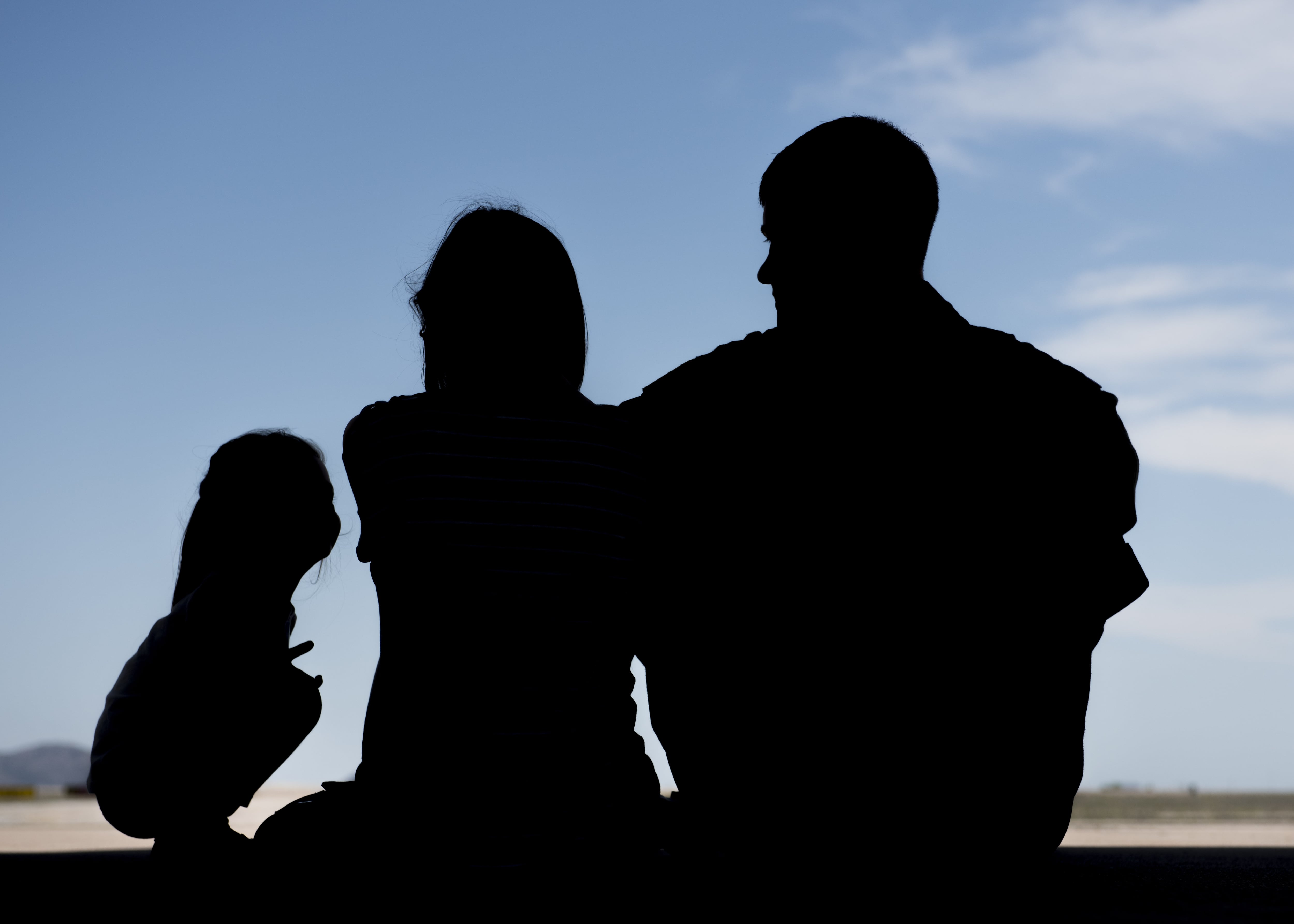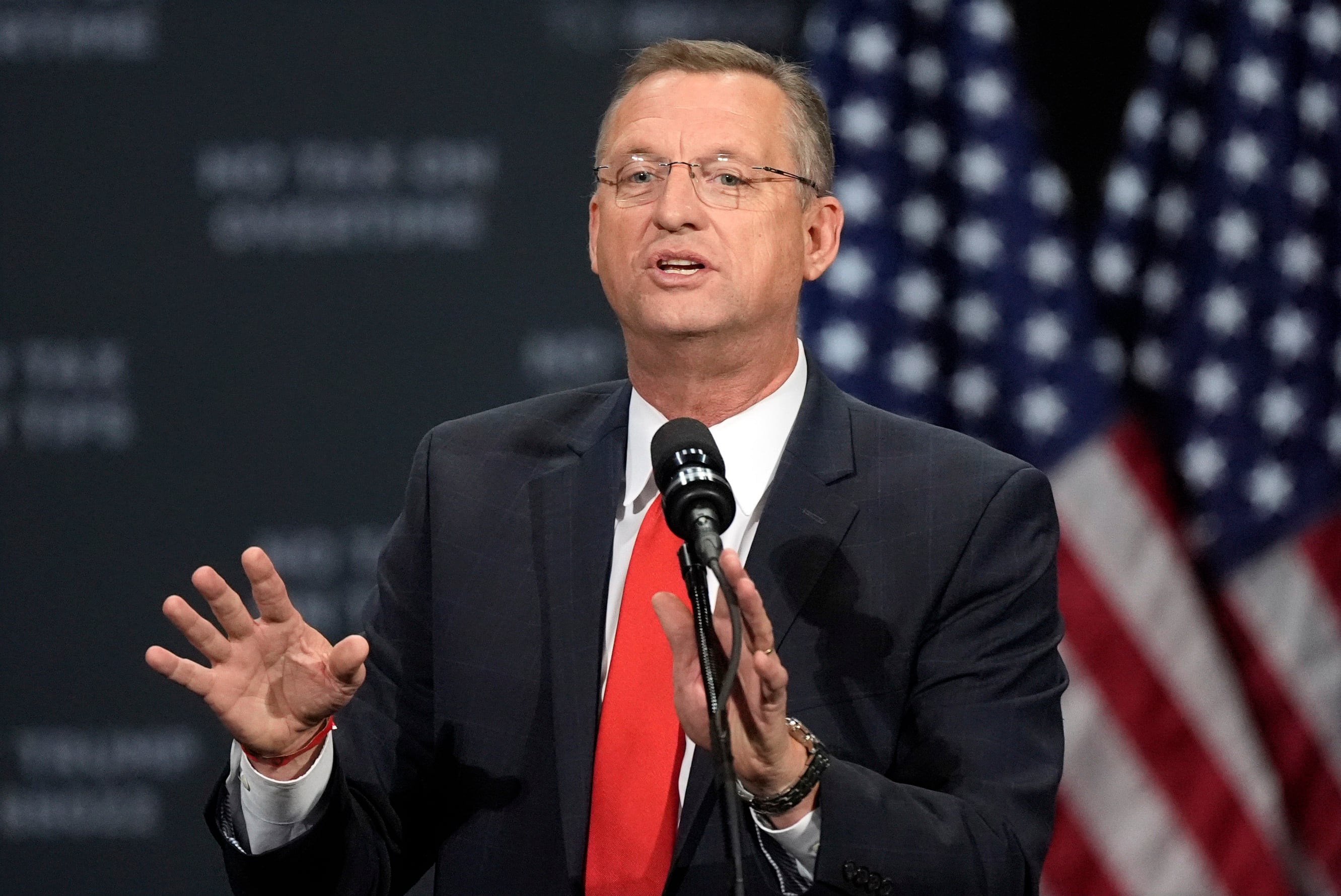Army Chief Warrant Officer 2 Cliff Bauman was four blocks from the Pentagon heading to a meeting on Sept. 11, 2001, when Flight 77 slammed into the building at 9:37 a.m.
Bauman sent the soldier he was with back to the office and ran ahead to help. He spent the next 36 hours applying his expertise as a telecommunications officer searching the rubble and flooded hallways for cellphones and their trapped owners.
When the rescue effort turned to recovery, he went home, washed his uniform and returned to work the following day, never considering what he'd been through.
But a year later, Bauman came across a newspaper article containing a letter from a son to his mother who had perished in the attack.
"I had crawled over half her body in the Pentagon," said Bauman, remembering the woman.
The poignant missive sent the stoic soldier into a downward spiral. He became withdrawn, began drinking more heavily and avoided sleep to shut out the nightmares. At a co-worker's request, he went to counseling but lied to the therapist about his situation, fearful for his job and security clearances.
While home on leave for the holidays, he scrawled a suicide note on a paper towel and took 22 sleeping pills.
"People are always asking me what the trigger was that day, but I don't really know," said Bauman, now a CW4. "I just didn't want to live with the guilt of not finding anyone alive anymore."
But his brother found him and rushed him to the hospital, and he survived.
Today, Bauman has become a foot soldier in the fight to prevent other troops from considering suicide. He wants service members to know that campaigns designed to help — from Comprehensive Soldier and Family Fitness to mental health programs, therapy and peer-to-peer counseling support — do work, and that seeking help is the courageous thing to do.
"Everything affects people differently. And that's OK. It doesn't make a person less of a soldier, male or female, if you [deployed and have] an issue and no one else does," Bauman said.
Military suicides rose steadily from 2006 through 2009 before leveling off for two years. They then jumped sharply in 2012 and have not returned to pre-9/11 levels, despite aggressive efforts by the services and the Defense Department to raise awareness and increase training to address the problem.
Last year, 532 service members died by suicide, including 273 active-duty troops, 169 reservists and 90 Guardsmen.
To mark Suicide Prevention Month in September, the Defense and Veterans Affairs departments are highlighting their "Power of One" campaign — the idea that saving a life requires just one person to reach out, intervene, recognize the warning signs or make a phone call.
Keita Franklin, director of the Defense Suicide Prevention Office, said DoD also is increasing its emphasis on a policy that asks senior leaders to question troubled troops about their access to personal firearms and encourage them to surrender the weapons, as well as on promoting initiatives to train leaders and peers to watch for signs of trouble, recognize them, listen and urge troops to get help.
"We know when people in the military are at risk, they often go to their peers before they come to professionals, so we are putting a lot of emphasis on training for peers so they can respond," Franklin said.
Also addressing its own suicide crisis, the VA, which has estimated that 22 veterans take their own lives each day, is boosting funding for its suicide prevention programs, emphasizing community outreach, hiring 80 new employees for the Veterans Crisis Line and improving peer counseling services, according to Caitlin Thompson, VA deputy director of suicide prevention.
"We continue to increase our numbers with peer support specialists," Thompson said. "We know that veterans prefer veterans and peers connect. It's important for us to provide opportunities to connect."
Bauman acknowledged that troops often don't want to engage in suicide prevention courses because they see additional training modules as a burden or want to avoid the topic altogether, for fear that it may stir up deeply buried thoughts and concerns.
But he believes all service members benefit from these programs and most learn valuable skills from them.
While attending master resilience training at the University of Pennsylvania, for example, Bauman learned two practices he continues to use today: At the end of each day, he "hunts the good stuff," thinking of three positive things that happened to him that day.
He also avoids "catastrophizing" — dwelling on the worst-case scenario in any given situation.
"I'm pretty sure that if I had been taught those skills when I was having my own issues, I would not have gone down the path I did," Bauman said.
Her He notes that if he had completed suicide on that day, he would not have met his wife and had two sons. The lives of three fishermen he saved in the Chesapeake Bay in 2009 — a heroic act for which he was awarded the Soldier's Medal — would have been lost. He would not have made CW3 or CW4.
And he would not be the resource he has sought to become to help troubled troops.
Bauman made a video in 2012 for Make the Connection, a VA campaign that provides resources to troops and veterans and allows them to connect with one another, as well as with professionals, if they are transitioning from military service, facing health issues, navigating life or in crisis.
He did it, he said, to encourage others to get help if they need it.
"You are not a burden. You are worth it. Go ahead and do it," he said.
The Veterans Crisis Line is available 24 hours a day, seven days a week at (800) 273-8255, press 1.
Patricia Kime is a senior writer covering military and veterans health care, medicine and personnel issues.

